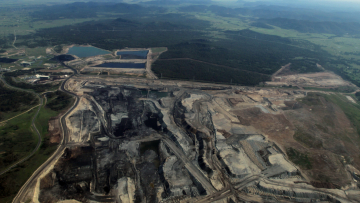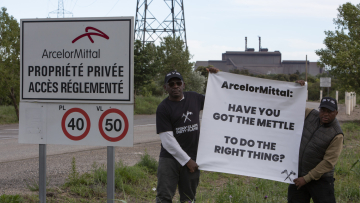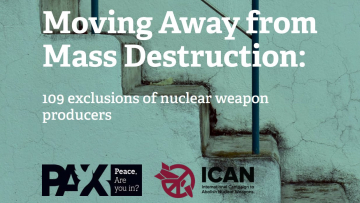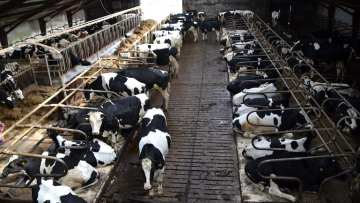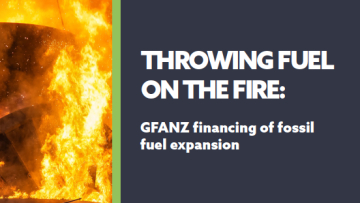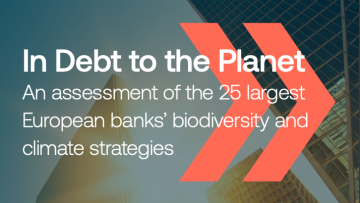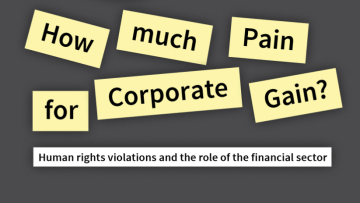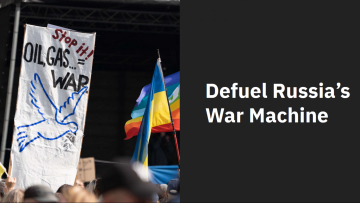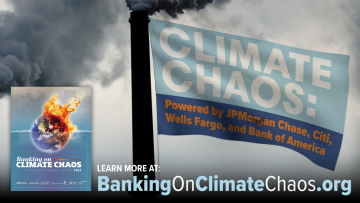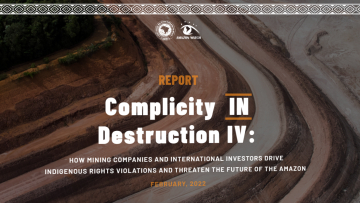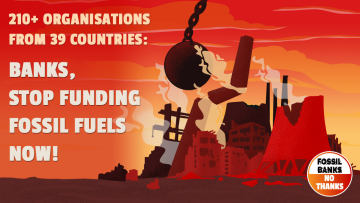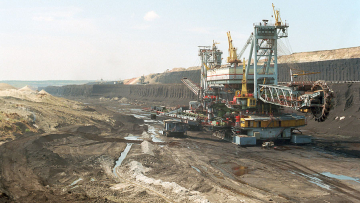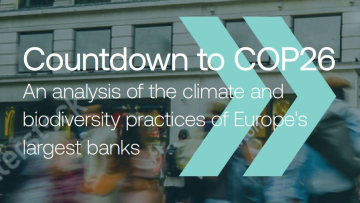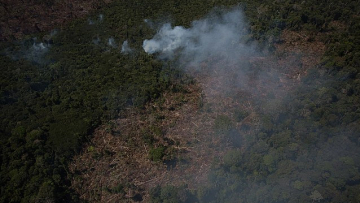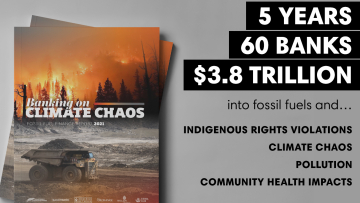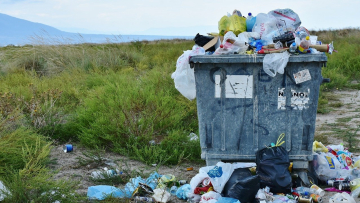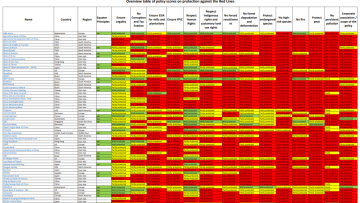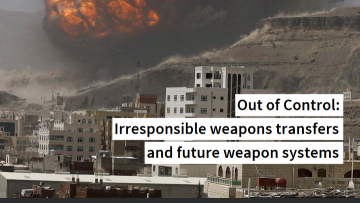
Active
This profile is actively maintained
Active
This profile is actively maintained| Website | https://www.commerzbank.com/ |
| Headquarters |
Kaiserplatz
60261 Frankfurt am Main
Germany
|
| CEO/chair |
Bettina Orlopp CEO |
| Supervisor | |
| Ownership |
listed on Frankfurt Stock Exchange
Commerzbank's complete shareholder structure can be accessed here. |
Commerzbank AG, established in 1870, is Germany's second largest bank, and headquartered in Frankfurt am Main. Next to a large presence in the German banking market, Commerzbank has numerous branch offices throughout Europe. The bank's activities focus on: private customers, small business and Corporates & Markets.
Commerzbank's most important sustainability commitments can be found at the website sections listed below.
Commerzbank is linked to a number of companies and projects that BankTrack considers controversial (so called Dodgy Deals), e.g. as a current or past financier or through an expression of interest. The profiles below provide more details on the nature of Commerzbank's link to these deals.
Commerzbank has set up a whistleblowing channel open to everyone, allowing individuals to report human rights and environmental concerns directly to the bank. Complaints can be submitted through this platform. More information is available here. It is also possible to lodge a complaint with the OECD National Contact Point (see OECD Watch guidance).
This page evaluates Commerzbank's responses to instances of alleged human rights violations linked to its finance, raised by civil society organisations. It is not intended to be exhaustive, but covers selected impacts raised by BankTrack and other civil society partners since 2016. For the full scoring methodology, see here. For more information about BankTrack's evaluation of bank responses to human rights impacts, see the 2021 report "Actions speak louder: assessing bank responses to human rights violations".
Banks and Climate
The 2025 Banking on Climate Chaos report showed that Commerzbank provided $13.1 bn in financing to the fossil fuel industry between 2021 and 2024. In 2024 only, Commerzbank provided $4.5 bn, including $2.8 bn for oil, gas and coal companies expanding fossil fuels. Find further details on Commerzbank's fossil fuel portfolio and how it compares to other large banks globally on the Banking on Climate Chaos website below.
Partner organisation Reclaim Finance tracks the coal, oil and gas policies of financial institutions, including banks, in their Coal Policy Tool (CPT) and the Oil and Gas Policy Tracker (OGPT). BankTrack works closely with Reclaim Finance and endorses their policy assessments. Find further details on their assessment of Commerzbank’s fossil fuel policy below.
Banks and Human Rights
BankTrack assessed Commerzbank in its 2024 Global Human Rights Benchmark, where it achieved 4.5 points out of 15 and was ranked as “follower”.
The bank scored 0 out of 3 points on the new “specific rights indicators”, which assess how banks address human rights defenders, Indigenous Peoples’ right to Free, Prior and Informed Consent and environmental rights in their policies and practices.
In addition, Commerzbank scored 0 out of 3 on how it responds to alleged human rights violations linked to its finance, which were raised by civil society organisations. More information is detailed in the “Accountability” section of this profile.
The table below shows BankTrack's assessment of how Commerzbank has implemented the UN Guiding Principles on Business and Human Rights. Please click on 'expand all details' and 'explanation' for further information on the methodology.
Our policy assessments are always a work in progress. We very much welcome any feedback, especially from banks included in the assessments. Please get in touch at humanrights@banktrack.org.
Global Human Rights Benchmark 2022
Global Human Rights Benchmark 2024
Banks and Nature
Commerzbank’s policies for forest-risk sectors (beef, soy, palm oil, pulp and paper, rubber and timber) have been assessed by the Forests & Finance coalition, achieving an overall score of 2.2 out of 10 and ranking it as a follower. Commerzbank achieved a score of 0 out of 10 specifically for its policies related to the beef sector and 6.6 out of 10 for its policies related to the palm oil sector. In addition, BankTrack and the Environmental Paper Network have assessed Commerzbank’s policies related to the pulp and paper sector.
Between 2016 and 2022, Commerzbank provided USD 447 million in credit to companies operating in these forest-risk sectors and held investments amounting to USD 1 million as of 2022. For more information, see the links below.
Forest & Finance Policy Assessment 2022: Overall scores
A bank can obtain a total of 10 points for the quality of its policies. The total score is based on their scores per sector, weighted against their financing and investment for each sector. For further details on this see here. Based on their overall score, banks are then classified as Laggards, Followers, Front runners or Leaders, as follows:
Forest & Finance Policy Assessment 2022: Beef
A bank can obtain a total of 10 points for the quality of its beef policy. The total score is based on their scores per sector, weighted against their financing and investment for each sector. For further details on this see here. Based on their overall score, banks are then classified as Laggards, Followers, Front runners or Leaders, as follows:
Forest & Finance Policy Assessment 2022: Palm Oil
A bank can obtain a total of 10 points for the quality of its palm oil policy. The total score is based on their scores per sector, weighted against their financing and investment for each sector. For further details on this see here. Based on their overall score, banks are then classified as Laggards, Followers, Front runners or Leaders, as follows:
Tracking the Net Zero Banking Alliance
Commerzbank is a member of the Net Zero Banking Alliance (NZBA) and has therefore committed to reduce its financed emissions to net zero by 2050; within 18 months of joining the alliance set interim targets for 2030 (or sooner) for high emission priority sectors, and within 36 months set further sector targets; set new intermediary targets every 5 years from 2030 onwards; annually publish data on emissions and progress against a transition strategy including climate-related sectoral policies; and take a robust approach to the role of offsets in transition plans. BankTrack track's implementation of these commitments in the NZBA compliance tracker.
Banks and Steel
As part of the Net Zero Banking Alliance (NZBA), Commerzbank is required to set interim targets for 2030 for high emission priority sectors. For Commerzbank, this includes its lending to the steel sector. You can see Commerzbank’s iron and steel decarbonisation targets, and its progress towards meeting them in our NZBA steel targets compliance tracker:
Partner organisation Reclaim Finance’s 2023 report on metallurgical coal financing showed that Commerzbank provided US$ 2.7 billion in loans and underwriting to developers of new metallurgical coal between 2016 and 2022. Find further details on Commerzbank’s metallurgical coal financing and and how it compares to other large banks globally in the report.
Reclaim Finance also tracks the metallurgical coal policies of financial institutions, including banks, in their Coal Policy Tool. BankTrack works closely with Reclaim Finance and endorses their policy assessments. Find further details on their assessment of Commerzbank metallurgical coal policy below.
According to a report by Reclaim Finance, between 2016 and June 2023, Commerzbank provided $6.8 billion in finance to the fossil-steel industry, making it the 19th largest financier worldwide. Find further details on Commerzbank's steel financing and how it compares to other large banks globally in the report.
Banks and Russian Aggression in Ukraine
BankTrack is keeping track of the public response of Commerzbank to Russia's illegal invasion of Ukraine. Commerzbank did not publicly condemn the war. Commerzbank is considered by Leave-Russia.org to be "suspending" its operations in Russia. We consider its exposure to Russia as limited, with over $1.45bn of financial assets. Commerzbank supports the Russian fossil fuel industry through loans and underwriting. For further details, see the table linked below.





